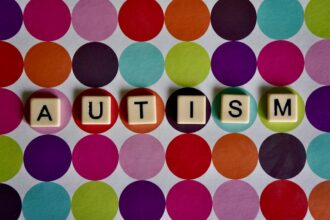Depersonalization and derealization are psychological phenomena that can leave you feeling disconnected from yourself or your surroundings. When you experience depersonalization, you may feel as though you are observing your own life from a distance, as if you are an outsider looking in. This can manifest as a sense of detachment from your thoughts, feelings, or even your body.
You might find yourself questioning your own identity or feeling like you are living in a dream. On the other hand, derealization involves a sense of unreality regarding your environment. You may perceive the world around you as distorted, foggy, or lacking in significance, making it difficult to engage with your surroundings fully.
These experiences can be unsettling and disorienting, often leading to confusion and anxiety. While they can occur in isolation, they are frequently associated with various mental health conditions. Understanding these phenomena is crucial for recognizing their impact on your life and seeking appropriate help.
Both depersonalization and derealization can be temporary responses to stress or trauma, but they can also become chronic conditions that significantly affect your daily functioning.
Key Takeaways
- Depersonalization is a mental health condition where a person feels detached from their own thoughts, feelings, and body, while derealization is a condition where a person feels detached from their surroundings.
- Symptoms of depersonalization and derealization include feeling like an outside observer of one’s thoughts or body, feeling like the world is unreal or distorted, and experiencing emotional numbness.
- Causes of depersonalization and derealization can include trauma, stress, anxiety, depression, and substance use.
- Diagnosing depersonalization and derealization involves a thorough evaluation of symptoms, medical history, and ruling out other potential causes.
- Treating depersonalization and derealization may involve therapy, medication, stress management techniques, and lifestyle changes.
Symptoms of Depersonalization and Derealization
The symptoms of depersonalization and derealization can vary widely from person to person, but they often share common threads. In depersonalization, you might experience feelings of unreality concerning your thoughts or body. You may feel as if you are watching yourself in a movie or that your body does not belong to you.
This can lead to a profound sense of alienation and confusion about your identity. You might also notice changes in how you perceive time, with moments feeling stretched or compressed. Derealization, on the other hand, can manifest as a sense of detachment from your surroundings.
You may perceive the world as flat, colorless, or dreamlike. Familiar places might seem strange or unfamiliar, and everyday objects may lose their significance. These symptoms can be distressing and may lead to heightened anxiety or panic attacks.
It’s important to recognize that these experiences are not uncommon and can occur in response to stress or overwhelming emotions.
Causes of Depersonalization and Derealization

The causes of depersonalization and derealization are complex and multifaceted. Often, these experiences arise as a coping mechanism in response to extreme stress or trauma. For instance, if you have faced a traumatic event, your mind may employ depersonalization as a way to protect you from the emotional pain associated with that experience.
This dissociative response can help you distance yourself from the distressing feelings, but it can also lead to persistent feelings of disconnection. Additionally, certain mental health disorders can contribute to the onset of these symptoms. Anxiety disorders, depression, and post-traumatic stress disorder (PTSD) are commonly linked to depersonalization and derealization.
Substance use can also play a role; some drugs can induce feelings of detachment or unreality. Understanding the underlying causes is essential for addressing these experiences effectively and finding appropriate treatment options.
Diagnosing Depersonalization and Derealization
| Metrics | Value |
|---|---|
| Prevalence | 1-2% of the population |
| Age of Onset | Usually in adolescence or early adulthood |
| Duration | Episodes can last for hours, days, months, or even years |
| Associated Conditions | Anxiety disorders, depression, PTSD |
| Treatment | Therapy, medication, mindfulness techniques |
Diagnosing depersonalization and derealization typically involves a comprehensive evaluation by a mental health professional. During this process, you will likely discuss your symptoms in detail, including their frequency, duration, and impact on your daily life. The clinician may also inquire about any traumatic experiences or significant stressors that could be contributing to your symptoms.
It’s important to note that there is no specific test for diagnosing depersonalization or derealization; rather, the diagnosis is based on clinical criteria outlined in diagnostic manuals such as the DSM-5 (Diagnostic and Statistical Manual of Mental Disorders). A thorough assessment will help rule out other potential causes of your symptoms, such as medical conditions or substance use disorders. Once a diagnosis is made, you can work collaboratively with your healthcare provider to develop an appropriate treatment plan.
Treating Depersonalization and Derealization
Treatment for depersonalization and derealization often involves a combination of therapeutic approaches tailored to your individual needs. Psychotherapy is one of the most effective methods for addressing these symptoms. Cognitive-behavioral therapy (CBT) can help you identify and challenge negative thought patterns associated with your experiences.
Through therapy, you can learn coping strategies to manage anxiety and develop a greater sense of connection to yourself and your environment. In some cases, medication may be prescribed to alleviate symptoms associated with underlying mental health conditions such as anxiety or depression. Antidepressants or anti-anxiety medications may be considered based on your specific situation.
It’s essential to work closely with your healthcare provider to monitor the effectiveness of any prescribed treatments and make adjustments as needed.
Coping Strategies for Depersonalization and Derealization

In addition to professional treatment, there are several coping strategies you can employ to manage depersonalization and derealization in your daily life. Mindfulness practices can be particularly beneficial; engaging in mindfulness meditation or grounding exercises can help anchor you in the present moment. Focusing on your breath or paying attention to physical sensations can create a sense of connection to your body and surroundings.
Another effective strategy is maintaining a routine that includes regular physical activity and social interaction. Engaging in activities that bring you joy or fulfillment can help combat feelings of disconnection.
Impact of Depersonalization and Derealization on Daily Life
The impact of depersonalization and derealization on daily life can be profound. You may find it challenging to engage in social situations or perform tasks that once felt routine. The sense of detachment can lead to difficulties in forming connections with others, resulting in feelings of isolation or loneliness.
This disconnection from reality may also affect your ability to concentrate at work or school, leading to decreased productivity. Moreover, the emotional toll of these experiences can contribute to increased anxiety and depression. You might feel frustrated by the inability to control these sensations or worried about how they will affect your future.
Recognizing the impact on your daily life is an essential step toward seeking help and finding effective coping mechanisms.
Depersonalization and Derealization in Mental Health Disorders
Depersonalization and derealization are often intertwined with various mental health disorders. For instance, individuals with anxiety disorders may experience these symptoms as part of their overall struggle with anxiety management. Similarly, those diagnosed with depression may find that feelings of detachment exacerbate their emotional pain.
Post-traumatic stress disorder (PTSD) is another condition frequently associated with depersonalization and derealization. Survivors of trauma may dissociate as a way to cope with overwhelming memories or emotions related to their experiences.
Depersonalization and Derealization in Trauma and Stress
Trauma and stress are significant contributors to the onset of depersonalization and derealization symptoms. When faced with overwhelming situations—such as accidents, abuse, or loss—your mind may resort to dissociation as a protective mechanism. This response allows you to distance yourself from the emotional pain associated with the trauma, but it can also lead to persistent feelings of disconnection long after the event has passed.
Chronic stress can similarly trigger these experiences. Prolonged exposure to stressful situations—whether related to work, relationships, or other life circumstances—can overwhelm your coping mechanisms, leading to feelings of detachment from yourself or your environment. Recognizing the role of trauma and stress in these experiences is vital for developing effective coping strategies and seeking appropriate support.
Depersonalization and Derealization in Substance Use
Substance use can significantly influence the experience of depersonalization and derealization. Certain drugs—such as hallucinogens, marijuana, or alcohol—can induce feelings of detachment or altered perception of reality. For some individuals, these substances may trigger episodes of depersonalization or derealization that persist even after the effects of the drug have worn off.
Moreover, individuals who struggle with substance use disorders may find that their symptoms worsen during periods of withdrawal or when they are under significant stress related to their substance use. Understanding this relationship is crucial for addressing both substance use issues and the accompanying psychological symptoms effectively.
Seeking Help for Depersonalization and Derealization
If you find yourself struggling with depersonalization or derealization, seeking help is an essential step toward regaining control over your life. Start by reaching out to a mental health professional who specializes in dissociative disorders or anxiety-related conditions. They can provide a safe space for you to discuss your experiences openly and develop a tailored treatment plan.
Remember that you are not alone in this journey; many individuals experience similar feelings at some point in their lives. By seeking help, you take an important step toward understanding your symptoms better and finding effective coping strategies that work for you. Whether through therapy, medication, or support groups, there are resources available to help you navigate these challenging experiences and reclaim a sense of connection to yourself and the world around you.
In exploring the treatment of depersonalization and derealization, it’s essential to consider various therapeutic approaches that have shown promise in alleviating these distressing symptoms. One such approach is discussed in an insightful article on Unplugged Psychology, which delves into the nuances of cognitive-behavioral therapy (CBT) and its effectiveness in treating these conditions. The article highlights how CBT can help individuals reframe their thoughts and perceptions, ultimately reducing the intensity of depersonalization and derealization experiences. For a more comprehensive understanding, you can read the full article by visiting this link.
Learn More About Depersonalization & Derealization
FAQs
What is depersonalization and derealization?
Depersonalization is a mental health condition where a person feels detached from themselves, as if they are observing themselves from outside their body. Derealization is a similar condition where a person feels detached from their surroundings, as if the world around them is unreal.
What are the common symptoms of depersonalization and derealization?
Common symptoms of depersonalization and derealization include feeling disconnected from one’s body or surroundings, experiencing a sense of unreality, and feeling emotionally numb.
What are the causes of depersonalization and derealization?
The exact causes of depersonalization and derealization are not fully understood, but they are often associated with anxiety, trauma, depression, and other mental health conditions. Substance abuse and certain medications can also trigger these symptoms.
How are depersonalization and derealization treated?
Treatment for depersonalization and derealization may include therapy, such as cognitive behavioral therapy (CBT) or dialectical behavior therapy (DBT), to help individuals understand and manage their symptoms. Medications, such as antidepressants or anti-anxiety medications, may also be prescribed in some cases.
Can depersonalization and derealization be cured?
While there is no specific cure for depersonalization and derealization, many individuals can experience significant improvement in their symptoms with proper treatment and support. It is important for individuals to work with mental health professionals to find the most effective treatment approach for their specific needs.




